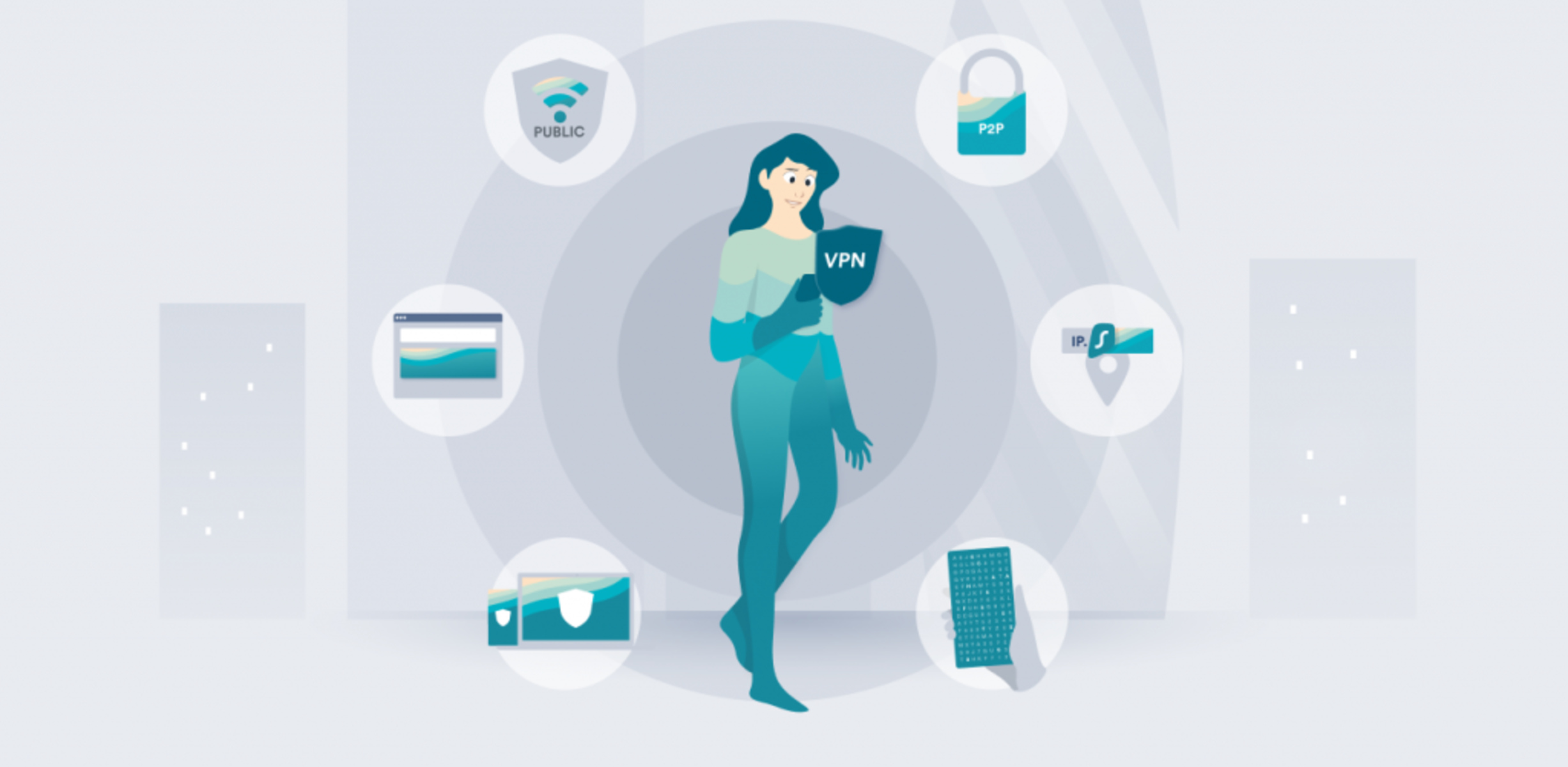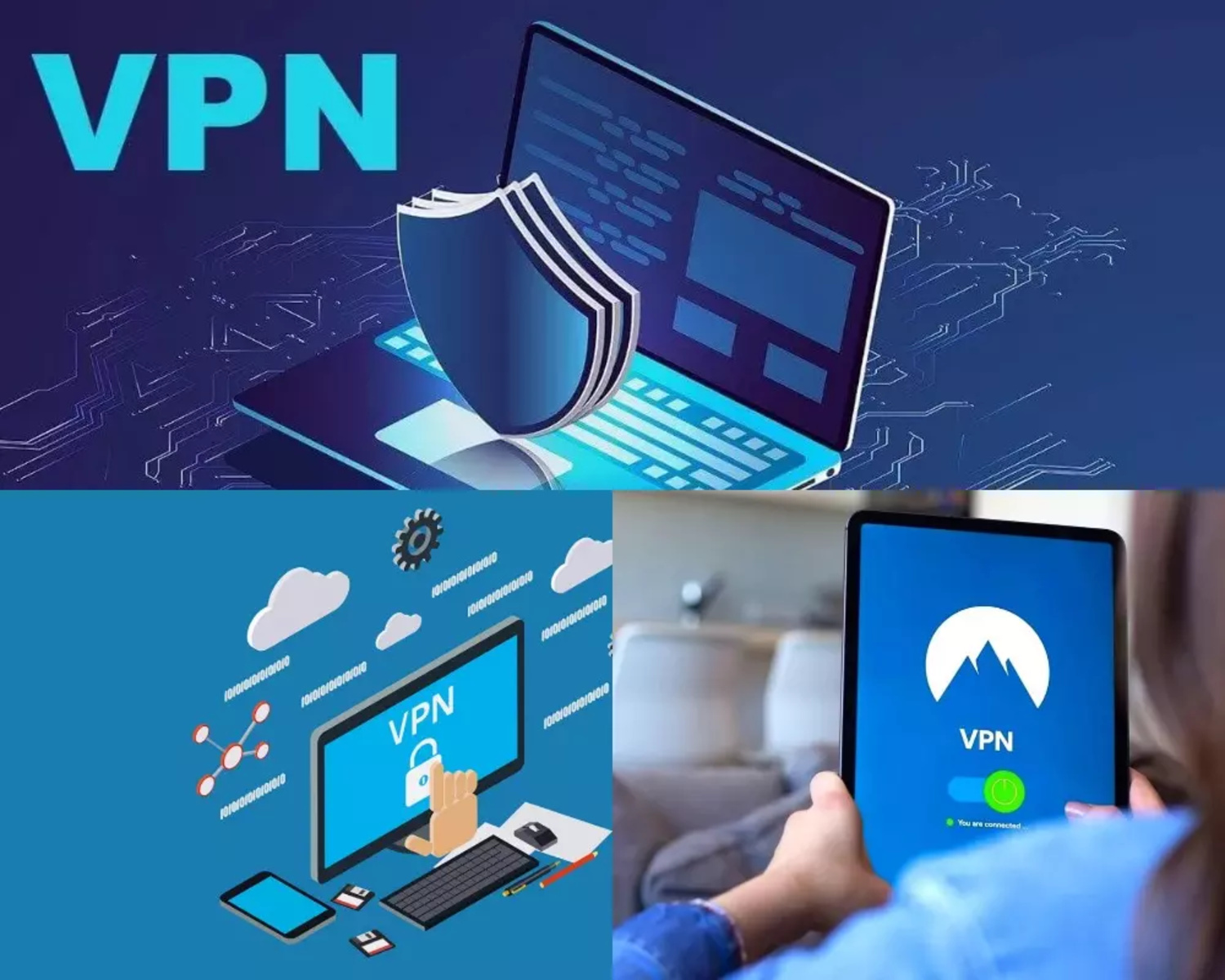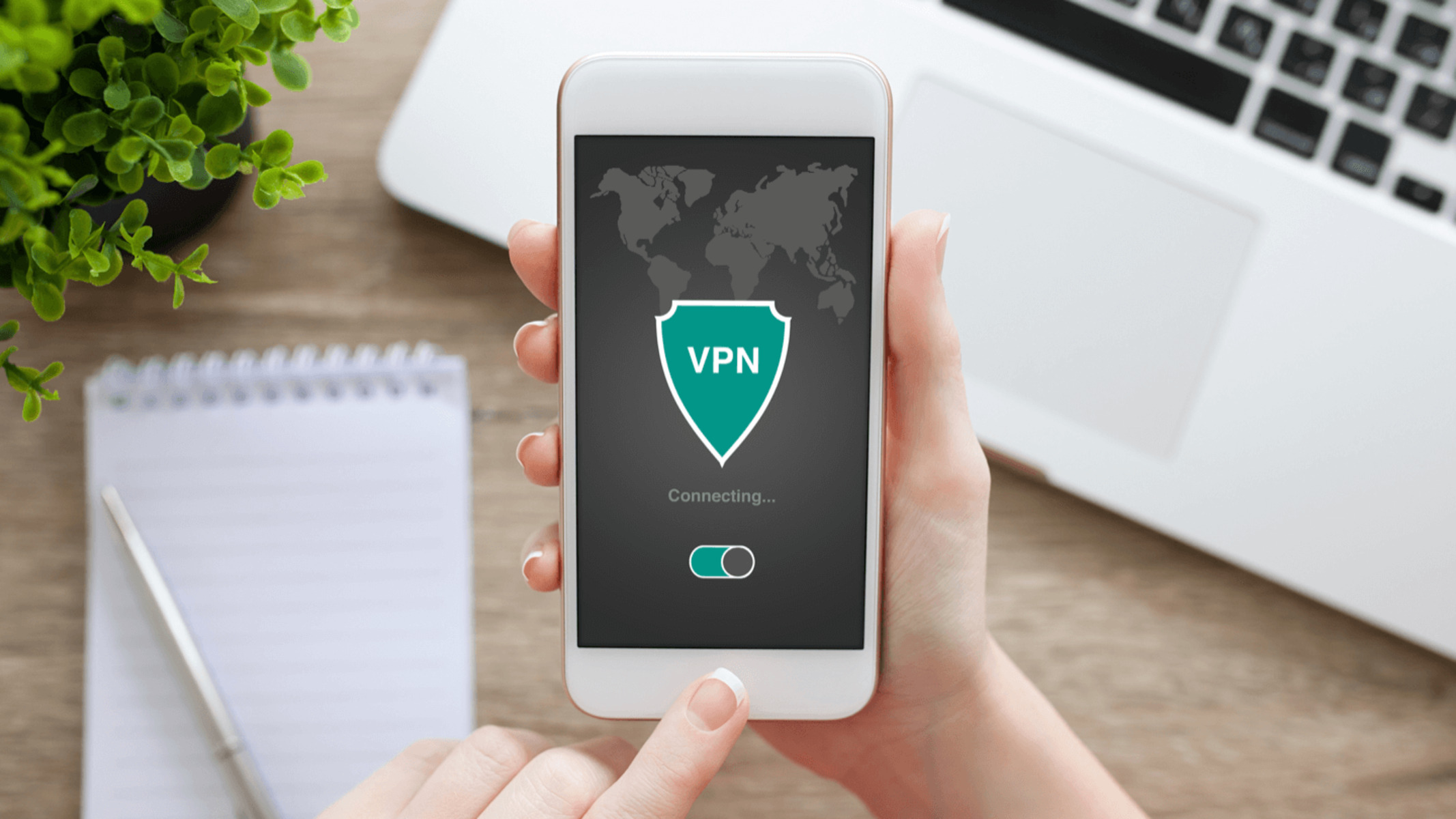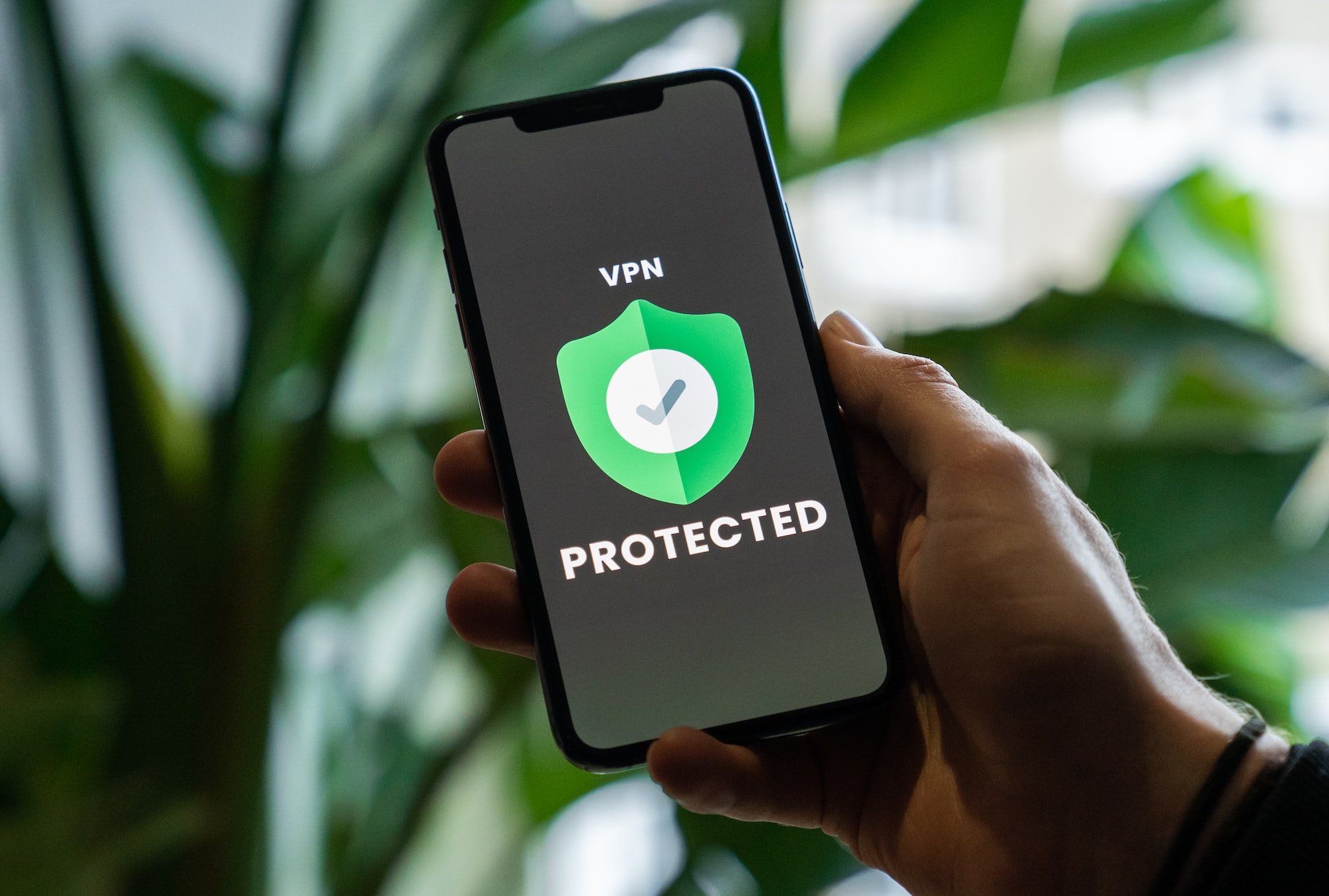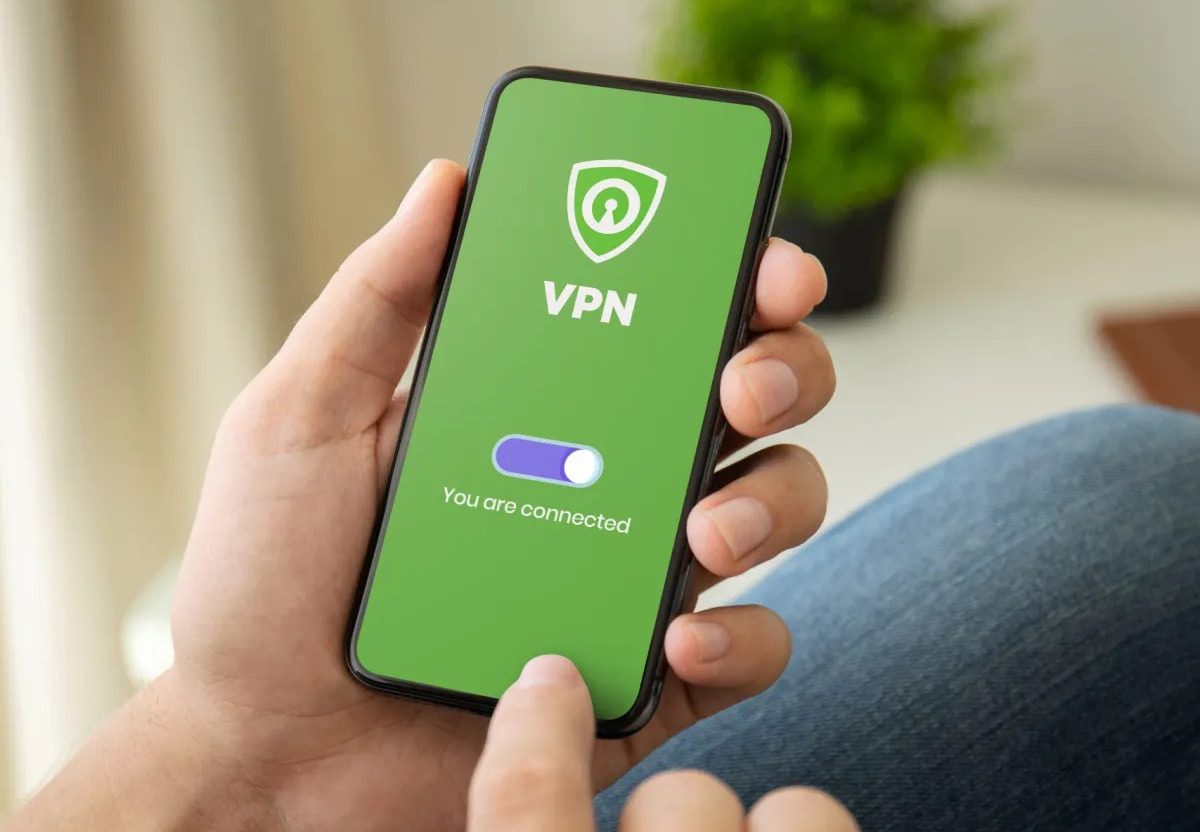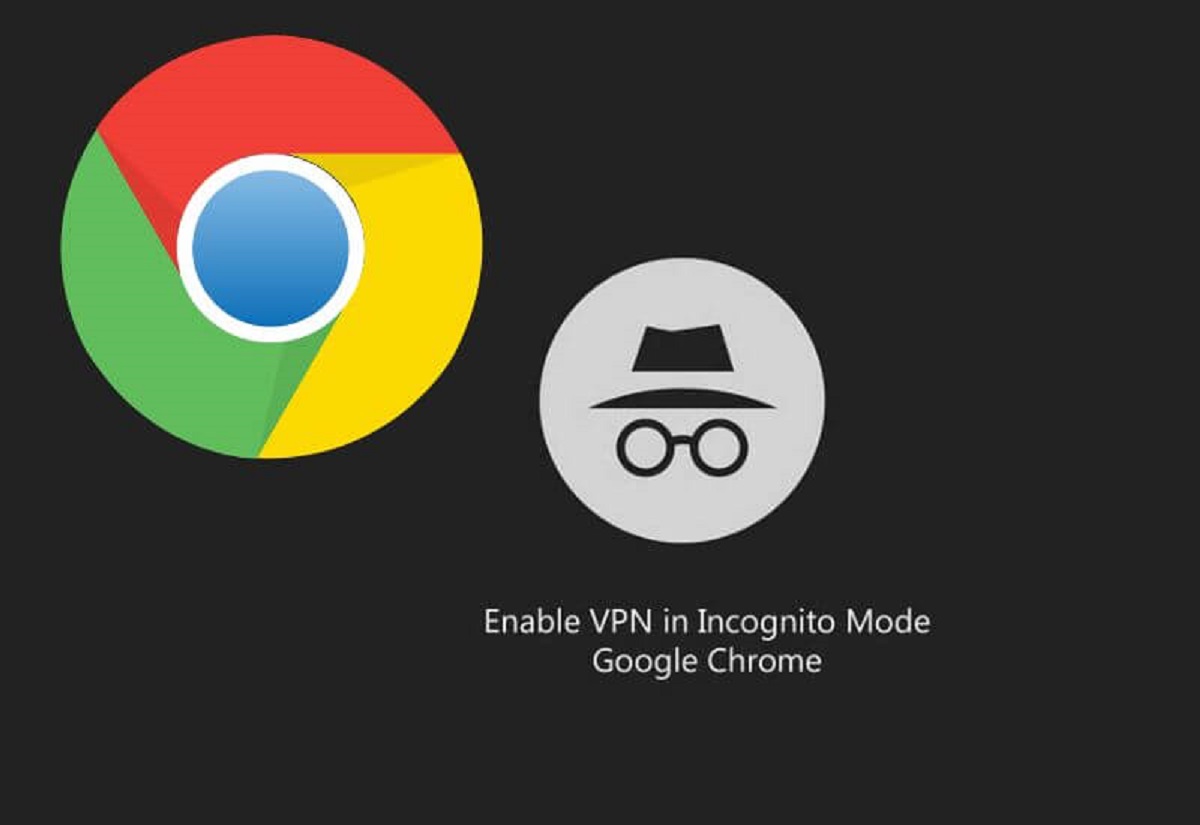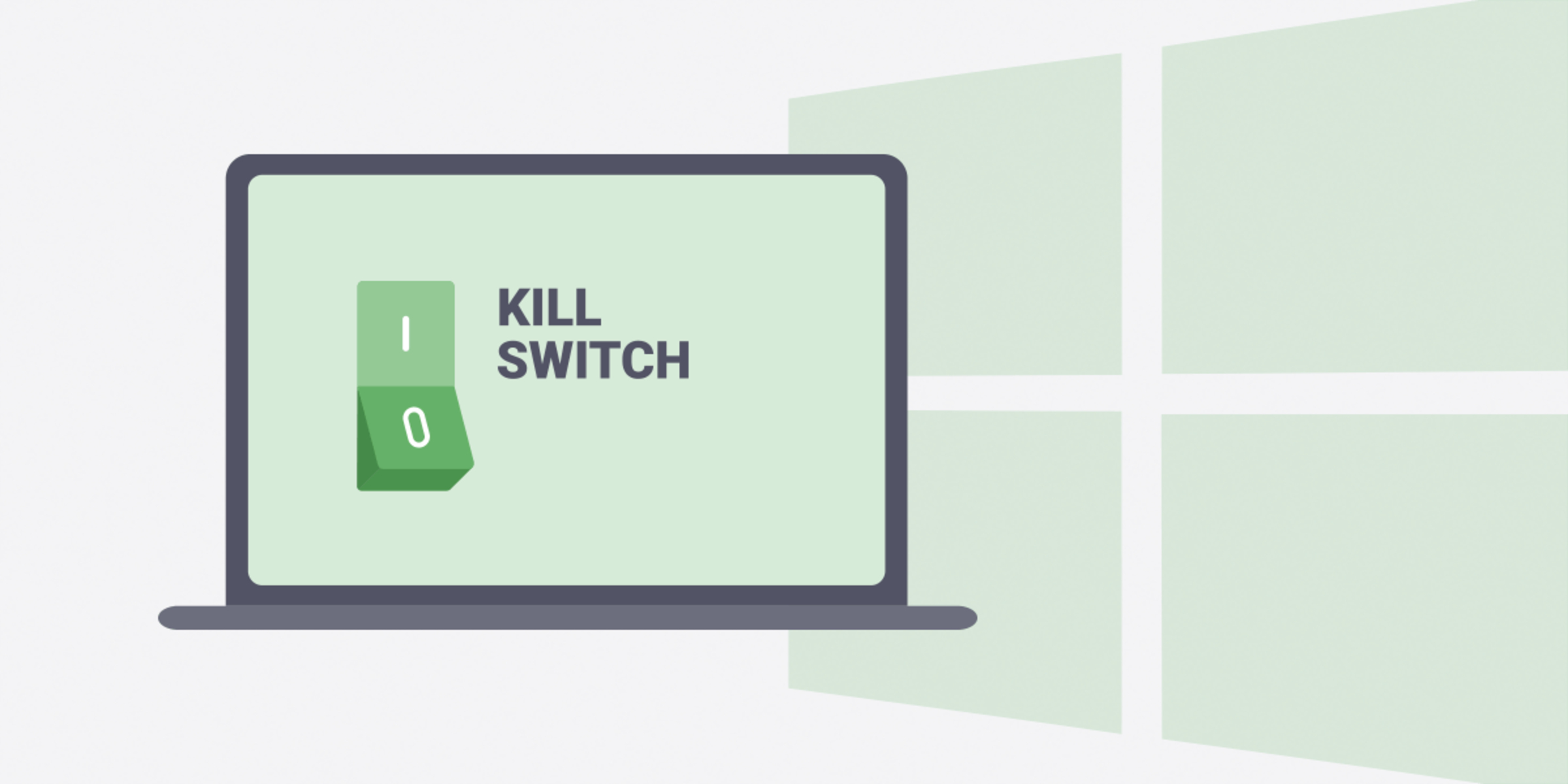Introduction
Welcome to our in-depth article on VPN security! In today’s digital age, where cyber threats and data breaches are rampant, it’s essential to understand the importance of securing our online activities. Virtual Private Networks, or VPNs, have increasingly gained popularity as a reliable solution to protect our sensitive information and ensure online privacy.
A VPN acts as a secure tunnel between your device and the internet, encrypting your data and routing it through remote servers. This creates a protective shield that shields your online presence from prying eyes, including hackers, ISPs, and government surveillance.
In this article, we will delve into the mechanics of VPNs, explore the different types of VPN protocols, and shed light on the encryption methods they employ. We will also discuss the factors that can impact VPN security and highlight potential weaknesses you should be aware of. To further complement your understanding, we will share valuable tips to enhance your VPN security posture.
Whether you are a business professional concerned about securing company data or an individual looking to protect your personal information, having a strong grasp of VPN security is crucial. By the end of this article, you will have a comprehensive understanding of the security measures employed by VPNs, enabling you to make informed decisions on selecting and utilizing a VPN service.
So, without further ado, let’s dive into the fascinating world of VPN security and equip ourselves with the knowledge to safeguard our online activities!
What is a VPN?
A Virtual Private Network, commonly known as a VPN, is a technology that allows users to create a secure and encrypted connection to the internet. It acts as a private network even when connected to a public network, such as the internet. The primary purpose of a VPN is to provide a secure means of transmitting data between a user’s device and a remote server.
When you use a VPN, your internet traffic is encrypted and routed through a server located in a different geographical location. This helps in masking your IP address and ensures that your online activities remain private and anonymous. It acts as a shield, preventing anyone, including your internet service provider (ISP) or potential hackers, from snooping on your online activities.
Additionally, a VPN allows you to browse the internet as if you were in a different location. By connecting to a server in another country, you can bypass geo-restrictions and access content that may be blocked in your region. This is especially useful when you want to stream content from services that are limited to specific countries or access websites that are restricted to certain locations.
Moreover, a VPN can help protect your sensitive information, such as passwords, credit card details, and personal data, from being intercepted by cybercriminals. By encrypting your data, a VPN ensures that even if it is intercepted, it is unreadable and useless to anyone without the decryption key.
Overall, a VPN provides a layer of security and privacy to your online activities. It offers benefits such as:
- Anonymity: With a VPN, you can mask your real IP address and browse the internet anonymously, keeping your online activities private.
- Secure Data Transmission: VPNs encrypt your internet traffic, making it difficult for anyone to intercept and read your data.
- Access to Geo-Restricted Content: By connecting to servers in different locations, you can bypass geo-restrictions and access content from anywhere in the world.
- Protection on Public Wi-Fi: When using public Wi-Fi networks, a VPN ensures that your data is encrypted, safeguarding it from potential threats.
Now that we have explored the basics of VPNs, let’s delve deeper into how they work!
How does a VPN work?
Understanding how a VPN works is crucial to grasp the concept of VPN security. At its core, a VPN creates a secure and encrypted connection between your device and a remote server. This connection is established through a VPN client installed on your device that communicates with a VPN server.
When you initiate a connection to a VPN, the VPN client encrypts your data before transmitting it to the VPN server. This encryption process converts your data into a secure and unreadable format. This ensures that even if someone intercepts your data, they won’t be able to decipher its contents without the appropriate decryption key.
Once your data is encrypted, it is transmitted to the VPN server through the internet. The VPN server acts as an intermediary between your device and the websites or online services you are accessing. It receives your encrypted data, decrypts it, and forwards it to the appropriate destination. This process of encrypting, transmitting, and decrypting your data happens in real-time and is seamless to the user.
One of the key benefits of a VPN is that it masks your IP address. When you connect to a VPN server, your IP address is replaced with the IP address of the server. This makes it difficult for websites, online services, and even your ISP to trace your online activities back to your real IP address.
Furthermore, a VPN allows you to choose the location of the VPN server you connect to. This means that you can virtually appear as if you are browsing the internet from a different country. This functionality is particularly useful for bypassing geo-restrictions and accessing region-specific content.
In summary, a VPN works by establishing a secure and encrypted connection between your device and a remote server. It encrypts your data, masks your IP address, and allows you to access the internet as if you were in a different location. By doing so, it enhances your online security, privacy, and freedom.
Now that we have explored how a VPN works, let’s move on to discover the benefits of using a VPN!
Benefits of using a VPN
Using a VPN offers a multitude of benefits for both individual users and organizations. Let’s explore some of the key advantages of using a VPN:
1. Enhanced Security and Privacy:
One of the primary benefits of using a VPN is the enhanced security it provides. By encrypting your internet traffic, a VPN ensures that your data remains secure and protected from potential threats. It adds an additional layer of privacy by hiding your IP address and making it difficult for anyone to track your online activities.
2. Access to Geo-Restricted Content:
A VPN allows you to bypass geo-restrictions and access region-specific content. By connecting to a VPN server in a different country, you can access streaming services, websites, and online content that may be restricted or unavailable in your own location. This opens up a world of entertainment and information that would otherwise be inaccessible.
3. Protection on Public Wi-Fi:
When using public Wi-Fi networks, such as those found in coffee shops, airports, or hotels, your data is vulnerable to interception by hackers. A VPN encrypts your data, protecting it from potential threats on public networks. This ensures that sensitive information, such as passwords or credit card details, remains secure while connected to public Wi-Fi.
4. Anonymity and Online Freedom:
Using a VPN allows you to browse the internet anonymously, shielding your online activities from prying eyes. It enables you to maintain your privacy, even from your Internet Service Provider (ISP). Additionally, a VPN can help you bypass censorship and access websites or online services that may be blocked in your location, enabling you to exercise your right to online freedom.
5. Secure Remote Access:
For individuals and organizations, a VPN provides a secure method for remote access to private networks. It allows employees to connect to their company’s internal network securely, even when working from outside the office. This ensures that sensitive business data remains protected, regardless of the user’s location.
6. Protection against ISP Tracking:
Using a VPN prevents your Internet Service Provider (ISP) from tracking your online activities. ISPs often collect data on users’ browsing habits and can sell this information to third parties. By using a VPN, your online activities are encrypted, making it nearly impossible for your ISP to track and monitor you.
These are just some of the many benefits that using a VPN can provide. Whether you are concerned about your online privacy, want to access restricted content, or need a secure way to connect to remote networks, a VPN is a valuable tool to enhance your digital experience.
Now that we have explored the benefits of using a VPN, let’s move on to discuss the different types of VPN protocols!
Types of VPN Protocols
When setting up a VPN, various protocols are used to establish the secure connection and ensure the smooth transmission of data between your device and the VPN server. Let’s explore some of the common types of VPN protocols:
1. OpenVPN:
OpenVPN is a popular open-source protocol known for its flexibility and security. It is widely supported across different platforms and devices, making it a versatile option. OpenVPN uses SSL/TLS encryption to establish a secure connection, providing strong security and protection against potential threats.
2. IPSec:
IPSec, short for Internet Protocol Security, is a widely used protocol for establishing VPN connections. It operates at the network layer of the OSI model and provides strong security through encryption and authentication. IPSec can be used in two modes: transport mode and tunnel mode, offering flexibility for different network setups.
3. L2TP/IPSec:
L2TP/IPSec, or Layer 2 Tunneling Protocol with IPSec, combines the best of both L2TP and IPSec. L2TP provides the tunneling mechanism for secure data transmission, while IPSec offers encryption and authentication for protecting the data. This protocol is commonly used on devices that do not support OpenVPN.
4. PPTP:
PPTP, or Point-to-Point Tunneling Protocol, is an older VPN protocol known for its ease of use and compatibility. It operates at the data link layer of the OSI model and is supported by a wide range of devices and operating systems. However, PPTP is considered less secure compared to other protocols and should be used with caution.
5. SSTP:
SSTP, or Secure Socket Tunneling Protocol, is a protocol developed by Microsoft. It uses the SSL/TLS encryption mechanism and operates over TCP port 443, making it less likely to be blocked by firewalls. SSTP provides a secure and reliable connection, particularly when used on Windows platforms.
Each VPN protocol has its own strengths and considerations, and the choice of protocol depends on factors such as the level of security needed, device compatibility, and network requirements. When selecting a VPN service, it is important to ensure that it supports the protocols that align with your specific needs.
Now that we have explored the different types of VPN protocols, let’s delve into the encryption methods employed by VPNs.
Encryption used by VPNs
Encryption is a crucial element of VPN security, as it ensures that your data remains safe and unreadable to unauthorized parties. VPNs use various encryption algorithms to protect your data during transmission. Let’s explore some of the common encryption methods used by VPNs:
1. AES (Advanced Encryption Standard):
AES is one of the most widely used encryption algorithms in VPNs. It offers strong and efficient encryption, making it highly secure. AES has different key sizes, including 128-bit, 192-bit, and 256-bit. The larger the key size, the stronger the encryption. AES-256 is considered the most secure and is widely recommended for sensitive data protection.
2. SSL/TLS:
Secure Socket Layer (SSL) and its successor, Transport Layer Security (TLS), are encryption protocols commonly used in VPNs to establish secure connections. SSL/TLS uses a combination of asymmetric and symmetric encryption to ensure data confidentiality, integrity, and authentication. It is often used in conjunction with other VPN protocols like OpenVPN and SSTP.
3. RSA:
RSA (Rivest-Shamir-Adleman) is an asymmetric encryption algorithm widely used for key exchange in VPN connections. It facilitates the secure exchange of encryption keys between the VPN client and server, ensuring that only authorized parties can decrypt the data. RSA is often used in conjunction with other symmetric encryption algorithms, such as AES, for a comprehensive security solution.
4. IPsec:
IPsec (Internet Protocol Security) is a suite of protocols used for securing IP communications. It provides encryption, authentication, and integrity verification of IP packets. IPsec can use a variety of encryption algorithms, including AES, to protect data transmitted over a VPN connection. It is commonly used in combination with the IPSec VPN protocol.
5. Camellia:
Camellia is a symmetric encryption algorithm developed as an alternative to AES. It offers strong encryption and has been designated as an ISO standard. While not as widely used as AES, Camellia provides an additional option for VPN encryption, particularly in regions where the algorithm is prevalent.
The encryption used by VPNs plays a vital role in securing your data and ensuring your online privacy. It is important to choose a VPN service that employs robust encryption methods, such as AES-256, to safeguard your sensitive information.
Now that we have explored the encryption methods used by VPNs, let’s move on to discuss the factors that can affect VPN security.
Factors Affecting VPN Security
While VPNs are designed to provide a secure and private connection, certain factors can impact their overall security. It’s important to be aware of these factors and consider them when using a VPN. Let’s explore some of the key factors that can affect VPN security:
1. VPN Protocol:
The choice of VPN protocol can significantly impact the overall security of your VPN connection. Some protocols, like OpenVPN and IPSec, are known for their strong security features, including advanced encryption methods and secure key exchange. On the other hand, less secure protocols, such as PPTP, should be avoided as they may have vulnerabilities that could compromise the security of your connection.
2. Encryption Strength:
The strength of the encryption algorithm used by the VPN is crucial for ensuring the security of your data. It is recommended to choose a VPN service that uses strong encryption, such as AES-256. Weaker encryption algorithms or shorter key lengths can make it easier for attackers to decrypt your data and compromise your security.
3. VPN Provider’s Trustworthiness:
The trustworthiness and reputation of the VPN provider are important factors to consider when it comes to VPN security. A reputable VPN provider will adhere to strict security practices, have strong encryption standards, and protect your privacy by not logging your online activities. Research and choose a VPN provider that has a proven track record of maintaining a secure and privacy-oriented service.
4. Logging Policy:
The logging policy of the VPN provider can also impact your overall security. VPNs that keep logs of your online activities can potentially compromise your privacy and security. It’s important to choose a VPN service that has a strict no-logs policy, meaning they do not keep any records of your online activities, IP addresses, or timestamps. This ensures that even if the VPN server is compromised or requested to provide data, no identifiable information is available.
5. DNS Leaks:
A DNS leak occurs when your internet traffic bypasses the VPN tunnel and is sent through your ISP’s DNS servers. This can expose your real IP address and compromise your privacy. A reliable VPN service will have mechanisms in place to prevent DNS leaks, such as using secure DNS servers or implementing DNS leak protection features.
6. Server Location:
The location of the VPN servers can also impact the security of your connection. Some jurisdictions have data retention laws or surveillance programs that may compromise your privacy. It’s advisable to choose VPN servers located in countries with strong privacy laws and regulations for maximum security and data protection.
Considering these factors and making informed choices when selecting a VPN service will help ensure that your VPN connection is as secure as possible.
Now that we have explored the factors that can affect VPN security, let’s proceed to the next section where we will discuss potential weaknesses of VPNs.
Potential Weaknesses of VPNs
While VPNs are a valuable tool for enhancing online security and privacy, they are not without their potential weaknesses. Understanding these weaknesses can help you make informed decisions and take additional steps to further strengthen your VPN security. Let’s explore some of the potential weaknesses of VPNs:
1. VPN Provider’s Trustworthiness:
The trustworthiness of the VPN provider plays a critical role in your overall security. If the VPN provider is not transparent about their logging policy or has a history of compromising user privacy, it can undermine the effectiveness of the VPN. It’s essential to thoroughly research and choose a reputable VPN provider that values user privacy and has a strong track record of protecting customer data.
2. VPN Server Vulnerabilities:
Like any server connected to the internet, VPN servers can be vulnerable to security breaches. If a VPN server is compromised, it can potentially expose users’ data and compromise their privacy. It is important to choose a VPN service that regularly updates and patches their servers, employs strict access control measures, and monitors for any signs of intrusion or malicious activity.
3. DNS Leaks:
DNS leaks can occur when your device bypasses the VPN tunnel and sends DNS requests through your ISP’s servers. This can expose your real IP address and compromise your privacy. Although modern VPN clients typically include DNS leak protection, it is crucial to ensure that your VPN service has proper safeguards in place to prevent DNS leaks and protect your identity.
4. VPN Blocking:
In some cases, governments, organizations, or ISPs may employ methods to block VPN connections or identify and restrict VPN traffic. This can limit the effectiveness of the VPN and prevent you from accessing blocked content or ensuring your privacy. Some VPN providers offer obfuscation techniques or specialized servers to bypass VPN blocking attempts, but it is important to keep in mind that there may still be situations where VPN blocking is successful.
5. User Error:
A VPN is only as secure as the user operating it. User error, such as connecting through an unsecured network, clicking on suspicious links, or downloading malicious files, can compromise the security of the VPN. It is important to maintain good security practices, use strong passwords, keep your devices up to date, and exercise caution while browsing the internet, even when connected to a VPN.
While the potential weaknesses of VPNs should not deter you from using them, it is crucial to be aware of these vulnerabilities and take appropriate steps to mitigate them. By choosing a reputable VPN service, practicing good security habits, and staying informed about emerging threats, you can significantly reduce the risks and enjoy the benefits of a secure VPN connection.
Now that we have explored the potential weaknesses of VPNs, let’s move on to the next section where we will discuss tips to enhance VPN security.
Tips to Enhance VPN Security
While VPNs provide a layer of security and privacy when browsing the internet, there are additional steps you can take to further enhance your VPN security. By implementing the following tips, you can maximize the effectiveness of your VPN and ensure a safer online experience:
1. Choose a Reputable VPN Provider:
Start by selecting a reputable VPN provider with a strong track record of prioritizing user privacy and security. Research their logging policies, security measures, and reputation to ensure that your data remains protected while using their service.
2. Enable Kill Switch:
A Kill Switch is a valuable feature that ensures your internet connection is severed if the VPN connection drops unexpectedly. This prevents any unencrypted data from being exposed, maintaining your privacy and security. Enable the Kill Switch feature in your VPN client to mitigate the risk of accidental leaks.
3. Use Strong Encryption:
Ensure that your VPN service uses strong encryption, such as AES-256. Strong encryption algorithms provide robust protection against potential threats. Additionally, verify that your VPN client is configured to use the highest encryption available.
4. Regularly Update VPN Software:
Keep your VPN software up to date with the latest patches and updates. Updates often include security fixes that address vulnerabilities, ensuring that your VPN remains secure and protected against emerging threats.
5. Use Multi-Factor Authentication:
Add an extra layer of security to your VPN account by enabling multi-factor authentication (MFA). MFA requires a second form of authentication, such as a unique code sent to your mobile device, in addition to your username and password. This adds an additional barrier to unauthorized access.
6. Avoid Public Wi-Fi:
Avoid connecting to unsecured public Wi-Fi networks when using your VPN. Public Wi-Fi networks can be vulnerable to attacks, and connecting to them without proper security measures can expose your data. If you must use public Wi-Fi, ensure that your VPN is enabled and configured to encrypt your traffic.
7. Regularly Change VPN Server Locations:
Consider changing VPN server locations periodically. This helps distribute your online activity across different IP addresses, making it more difficult for anyone to trace your activities back to a single location.
8. Enable DNS Leak Protection:
Ensure that your VPN client has DNS leak protection enabled. This feature prevents DNS queries from bypassing the VPN tunnel and protects against potential leaks that could expose your real IP address.
9. Practice Good Online Habits:
While a VPN adds an extra layer of security, it’s important to practice good online habits. Be cautious of suspicious links and downloads, use strong and unique passwords, and keep your devices and software up to date. These practices complement the protection provided by your VPN.
By following these tips, you can enhance the security of your VPN connection and enjoy a safer and more private online experience. Remember, ultimate security is a combination of a robust VPN service, good security practices, and vigilant awareness of potential threats.
Now that we have discussed tips to enhance VPN security, let’s conclude our comprehensive guide on VPN security.
Conclusion
In conclusion, VPNs are powerful tools that provide an additional layer of security and privacy when browsing the internet. By encrypting your data and routing it through remote servers, VPNs offer protection against potential threats, such as hackers and surveillance. They also enable access to geo-restricted content and allow for secure remote connections to private networks.
Throughout this guide, we have explored the fundamentals of VPN security, including what VPNs are, how they work, and the benefits they offer. We also discussed the different types of VPN protocols and encryption methods used, and the factors that can affect VPN security. Additionally, we explored potential weaknesses of VPNs and provided tips to enhance VPN security.
To maximize the effectiveness of your VPN and ensure your online security, it is crucial to choose a reputable VPN provider, enable essential security features like Kill Switch and DNS leak protection, and practice good online habits. Regularly updating your VPN software and using strong encryption further enhance your protection against potential threats.
While VPNs provide a valuable layer of security, it is important to remember that they are not foolproof. No security measure can guarantee complete protection. It is crucial to remain vigilant, stay informed about emerging threats, and adapt your security measures accordingly.
By taking the necessary precautions and using VPNs responsibly, you can enjoy a safer and more private online experience. Whether you are browsing the web for personal reasons or accessing sensitive business data, VPNs offer a reliable and effective means of protecting your online privacy and security.
We hope that this comprehensive guide has provided you with a deep understanding of VPN security and equipped you with the knowledge to make informed decisions about using VPNs to safeguard your online activities. Remember, your online security is in your hands, and utilizing the right tools and practices can go a long way in ensuring a safer digital experience.







